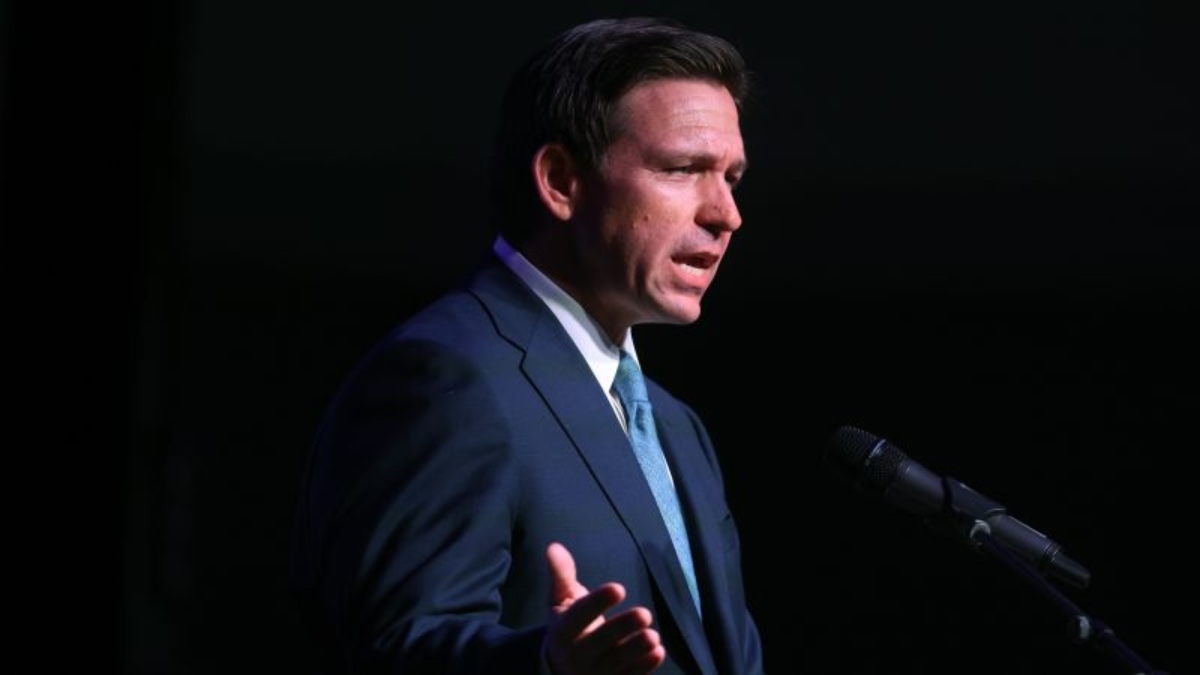(Trends Wide) — Florida Gov. Ron DeSantis is expected to make his presidential campaign official next week.
After a strong re-election in 2022 and using Florida as a proving ground for conservative priorities, his entry into the 2024 primary race seems like a foregone conclusion.
Although DeSantis remains former President Donald Trump’s main challenger, at least according to public opinion polls, he has slipped in some polls in recent weeks.
I spoke with Trends Wide’s Steve Contorno, who works in Florida and covers DeSantis, about what to expect from his campaign and what kind of candidate he could be.
You can read some of Contorno’s recent reports here.
Our conversation, conducted via email, can be read below.
Did DeSantis lose any momentum?
WOLF: More than any other Republican, DeSantis drew national media scrutiny and buzz that he might be the best-placed candidate to challenge Trump. Are he and his advisers worried about him that all that attention hasn’t translated into a stronger position in the GOP primary polls?
CONTOUR: Inside DeSantis’s insular orbit, his campaign is largely going as planned. His allies spent the spring raising money, launching a super PAC, building a national campaign and recruiting supporters so that when he enters the race, it won’t be a traditional day one.
To them, DeSantis survived the onslaught of Trump’s attacks without slipping, and this race will change dramatically once he’s in.
But campaigns ideally want to launch with momentum, and DeSantis has certainly lost control of the narrative a bit since his decisive re-election victory. And people close to his campaign have expressed concern that DeSantis is entering this in a more precarious position than he was six months ago.
An announcement around Memorial Day weekend is on the earlier side of the timeline that the governor’s political operation targeted six months ago when it expected a release after the Florida legislative session. This suggests that DeSantis is responding to donors and supporters eager to see him enter the race and challenge Trump more directly.
Use the Florida government to build an aggressive and conservative campaign argument
WOLF: You’ve written about this, but I was hoping you could recap how DeSantis uses his tenure as governor to create a record of achievement tailor-made for a Republican primary, because it’s unlike anything I’ve ever seen.
CONTOUR: Armed with a perceived mandate from his historic re-election victory and GOP supermajorities in both state legislatures, DeSantis used the spring to push an aggressive conservative agenda focused on issues that are heartening Republican voters.
In essence, I build the tenants of a platform that they can launch from. And thanks to his popularity within the party, Republican lawmakers follow his agenda.
This includes a six-week abortion ban, the removal of permits to carry weapons in public, a crackdown on illegal immigration, and new life-altering restrictions for transgender people.
Other priorities weren’t on many’s radar earlier this year — including lowering the threshold for putting someone on death row and allowing some child rapists to be executed — but they quickly became talking points. for DeSantis as he travels the country.
It’s all a reminder that DeSantis, as sitting governor, has the ability to set an agenda, a potential advantage in a field of Republicans with “ex” in their title.
Why is the Republican Party going to war with corporations?
WOLF: His showdown with Disney is, I think, one of the most important and interesting things happening in Republican politics right now, as it signals a shift in the way Republicans try to appeal to business and capitalist America. . What do you think of this new anti-corporate trend of the Republican Party?
CONTOUR: This is something that has been heard a lot in CPAC (the Conservative Political Action Conference) and other corners of the GOP for a while, but DeSantis is one of the first to bring this fight into the mainstream.
There is a belief among conservatives that progressives advance their causes through corporate boards rather than at the polls, and that these corporations marginalize certain sectors in pursuit of this agenda.
DeSantis is the first to actually exercise government power to force companies to avoid certain investment strategies, hiring and job retention efforts, or causes that the right considers political.
For example, he signed a law according to which a bank cannot refuse to grant a loan to an arms manufacturer on principle alone.
Many members of the Republican Party are not comfortable with these tactics and believe that it is contrary to the free market to use government authority to effectively punish companies for their political speech and the way they conduct their businesses. However, DeSantis doesn’t care about these arguments.
Did it drift too far to the right?
WOLF: Since your actions as governor are meant to appeal specifically to Republicans, have you gone too far to be an attractive candidate in the general election? Is it something that his campaign recognizes?
CONTOUR: Some potential donors and close DeSantis allies have said publicly and privately that they believe the governor has moved too far to the right, especially on guns and abortion, in a way that will hurt his ability to rally support outside of the foundation of the Republican Party.
But he presents himself as someone who is not afraid to take sides on divisive issues, and there was enormous pressure for him to take advantage of the Republican supermajority to advance these conservative priorities.
What is your path to victory?
WOLF: What would be DeSantis’ strategy as a candidate? What states would you focus on in the early primaries? How would he position himself?
CONTOUR: As we previously reported several months ago, the DeSantis political operation believes it has the money and name recognition to launch a national campaign from the ground up.
They are preparing for a protracted delegate battle against Trump that will drag on through the first four nominating states, and a superPAC that supports him is already recruiting aid in states through Super Tuesday.
He has said in the past that if he entered the race, he would consider Joe Biden his opponent, not Trump. It will be hard to maintain that stance, though, once he’s in the running and taking fire from Trump (as well as Nikki Haley and others).
How will Trump and DeSantis play off?
WOLF: The issue of Trump vs. DeSantis from the primaries has already become controversial. How do they compete behind the scenes?
CONTOUR: Some of Trump’s top advisers once ran DeSantis’s political operation, and several former Trump operatives and donors are now on DeSantis’ side, so the sniping is already pronounced.
Trump very publicly attacks DeSantis for his policies, personality and political skills, often repeating that the governor owes his career to Trump’s early endorsement.
DeSantis is trying to stay out of the fray for now, choosing to draw contrasts between his big win, drama-free administration and political victories against Trump’s 2020 defeat, his leak-prone White House and distracted presidency.
But in a move widely seen as an attempt to outdo Trump, DeSantis in Iowa made an unannounced visit to a barbecue in Des Moines, minutes from where the former president planned to hold a rally before canceling it due to the threat of (evil) ) time.
Would Trump voters one day accept it?
WOLF: Trump continues to have an important weight in the party. How is DeSantis trying not to alienate Trump supporters?
CONTOUR: By the time he enters the race, he’s going to alienate a large swath of Trump supporters who think DeSantis should wait his turn. That is unavoidable to some extent.
As hard as he tries to appeal to “Never Trump” supporters, his team knows that there are “Always Trump” voters out there, too.
But I’ve also talked to many Republicans who are open to alternatives or ready to move on from Trump, and this is what all the GOP contenders will be fighting for.
Can you campaign effectively if you don’t come across as nice?
WOLF: One criticism of DeSantis from his opponents is that he’s not the most likable of candidates. What is your impression of his ability to do retail politics and attract voters?
CONTOUR: Donors, operatives, former employees and former colleagues in Congress all have stories to share about their awkward interactions with DeSantis. He is curt, dismissive, and generally not personable in personal settings.
Former Rep. David Jolly, a former Republican who used to represent DeSantis’ hometown, said DeSantis as a member of the US House did not show up to the bipartisan meetings of the Florida delegation, did not work with them on bills law of importance to the state and tended to sit at the back of the chamber with headphones on.
But whether that matters to voters remains to be seen. He is well received at his events, some of which have been held in “Trump country,” he draws large crowds, and people have taken note of his improvements in making connections with voters.
Chris Ager, the New Hampshire Republican Party chairman who recently hosted DeSantis in his state, told me after the visit: “There was talk that he wasn’t good at retail and didn’t connect with people. That’s exactly what contrary to what I saw.






